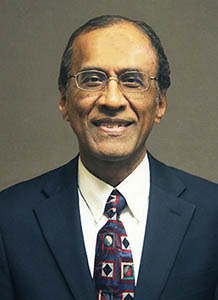
Sep. 5, 2025
Samrat Kumar Dey
I am a PhD student in Informatics specializing in Medical Informatics at the University of Missouri–Columbia, where I serve as a Graduate Research Assistant at the MU Institute for Data Science and Informatics in the Interdisciplinary Data Analytics and Search (iDAS) Lab. With more than nine years of teaching experience at the undergraduate level, I am currently on study leave from my role as Assistant Professor of Computer Science and Engineering. My research interests include Artificial Intelligence and Machine Learning for Healthcare, Agentic AI, Data Visualization, and Visual Reasoning, with a strong emphasis on disease predictive modeling, healthcare decision-making, and…

June 24, 2025
Fares Alahdab
Fares Alahdab, MD, MS, MSc, FAHA, is an associate professor of biomedical informatics, biostatistics, epidemiology and cardiology, and the director of graduate studies in health informatics at the University of Missouri School of Medicine. Dr. Alahdab’s clinical and research interests converge at the intersection of cardiovascular medicine, cardiometabolic health, advanced cardiovascular imaging and artificial intelligence. His work incorporates multimodal data sources to assess cardiovascular health and disease. In the research space, Dr. Alahdab applies machine learning and artificial intelligence to build predictive models that evaluate cardiovascular risk and outcomes. A central focus of his work is on explainable AI to…

June 24, 2025
Randi Foraker
Dr. Foraker is Professor and Chair of the Department of Biomedical Informatics, Biostatistics & Medical Epidemiology at the University of Missouri School of Medicine. She is trained as an epidemiologist and holds fellowships in the American Heart Association, American Medical Informatics Association, and the American College of Medical Informatics. Dr. Foraker specializes in the design of population-based studies and the integration of electronic health record data with socioeconomic indicators as well as the use of synthetic data for research. Her recent research has focused on the application of clinical decision support – embedded in the electronic health record – to…

June 23, 2025
James McClay
Dr. McClay is a professor in the newly organized Biomedical Informatics, Biostatistics, and Medical Epidemiology department at the University of Missouri. He is the Chief Research Informatics Officer for the School of Medicine and the Co-principal investigator for the Greater Plains Collaborative Research Network, a PCORnet Clinical Data Research Network. His research and advocacy focus on standardizing evidence-generation pipelines for learning health systems. Dr. McClay is a long-standing Health Level Seven (HL7) workgroup chair, instructor, and advocate for the HL7 FHIR specifications. He has practiced Emergency Medicine for 30 years and is a Fellow and informatics leader for the American…

June 18, 2025
Zaynab Shakkour
I am a PhD student in Bioinformatics with a Master’s degree in Neuroscience from the University of Missouri. My scientific interests center on leveraging cutting-edge tools in bioinformatics and AI to enhance personalized diagnoses and improve treatment strategies. My current research focuses on autism and rare diseases, combining neurogenomics and informatics to uncover genetic underpinnings that enable subgroup discovery and advance precision medicine through drug repurposing. I am excited to serve as Secretary of the Graduate Student Organization and look forward to helping build a more connected and supportive student community!

Feb. 13, 2024
Mai-Lan Ho
Mai-Lan Ho, MD, is an accomplished neuroradiology physician-scientist and leader specializing in the full scope of advanced imaging. Dr. Ho has clinical expertise in advanced neuroimaging techniques and genotype-phenotype correlation in complex diseases. Her research focus involves radiologic technology development, quantitative image analysis and imaging genomics. Dr. Ho also leads multiple national and international initiatives for data science and precision health and serves on national/international society committees and editorial boards dedicated to advanced imaging and AI. Dr. Ho’s research program involves the three key focus areas of translational advanced imaging, imaging genomics and artificial intelligence, improving imaging technology, implementation and…

Nov. 29, 2023
Kannappan Palaniappan
Kannappan Palaniappan is a Curators’ Distinguished Professor in electrical engineering and computer science. He has received several notable awards, including the National Academies Jefferson Science Fellowship (first in Missouri), the NASA Public Service Medal for pioneering contributions to (Big Data) scientific visualization of petabyte-sized archives, the Air Force Summer Faculty Fellowship, the Boeing Welliver Summer Faculty Fellowship, and MU’s William T. Kemper Fellowship for Teaching Excellence. At NASA’s Goddard Space Flight Center, he co-founded the Visualization and Analysis Lab that has produced a number of spectacular Digital Earth visualizations used by search engines (BlueMarble), museums, magazines and broadcast television. He…

Nov. 29, 2023
Gillian Bartlett

April 12, 2022
Ai-Ling Lin
Dr. Lin is an expert on translational neuroimaging of brain vascular and metabolic function in aging, Alzheimer’s disease, stroke and traumatic brain injury. She developed and applied magnetic resonance imaging and spectroscopy and positron emission tomography to test nutritional and pharmacologic approaches for protecting the brain from aging, traumatic brain injury, and Alzheimer’s disease. She also has applied artificial intelligence to identify markers that are highly predictable for Alzheimer’s disease development and progression and applied gut microbiome analyses to study gut-brain interaction underlying Alzheimer’s disease.